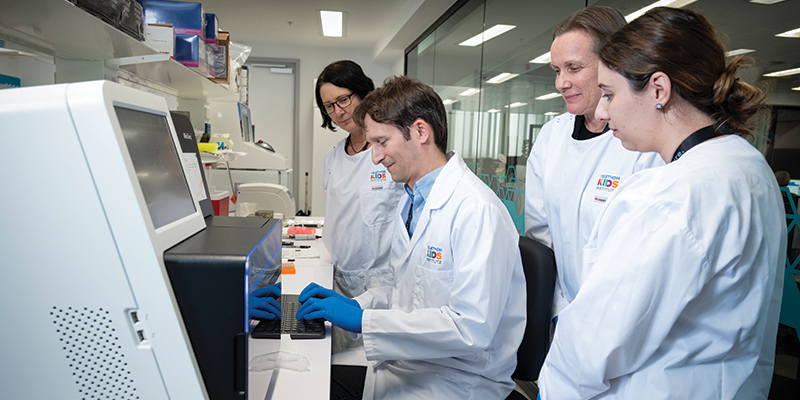Search
Research
Outcomes of interventions in neonatal sepsis: A systematic review of qualitative researchWhile a systematic review exists detailing neonatal sepsis outcomes from clinical trials, there remains an absence of a qualitative systematic review capturing the perspectives of key stakeholders.
Research
An exploratory study on the role of criminogenic risk factors and informant-rated everyday executive functioning in predicting the age of offending onset in young people with FASDFetal Alcohol Spectrum Disorder (FASD) is characterised by a range of neurodevelopmental deficits that may increase risks of justice system involvement. Improving our understanding of criminogenic risk factors and particularly the role of informant-rated executive functioning (EF) in predicting the age of offending onset in this clinical population may reduce recidivism and help inform targeted interventions.
Research
Finding the optimal regimen for Mycobacteroides abscessus treatment (FORMaT) in people with Mycobacteroides abscessus pulmonary diseaseMycobacteroides abscessus (MABS) is within the non-tuberculous mycobacteria family. It inhabits soil and water, exhibits multi-antibiotic resistance and causes opportunistic lung infections, which may progress to symptomatic MABS-pulmonary disease (MABS-PD) associated with substantial morbidity, increased healthcare utilisation, impaired quality of life and increased mortality.
Research
Mucopolysaccharidosis (MPS IIIA) mice have increased lung compliance and airway resistance, decreased diaphragm strength, and no change in alveolar structureMucopolysaccharidosis type IIIA (MPS IIIA) is characterized by neurological and skeletal pathologies caused by reduced activity of the lysosomal hydrolase, sulfamidase, and the subsequent primary accumulation of undegraded heparan sulfate (HS). Respiratory pathology is considered secondary in MPS IIIA and the mechanisms are not well understood.

News & Events
Personalised analytics propel rare disease diagnosesThe Kids Research Institute Australia researchers are at the forefront of rapid improvements in the diagnosis of rare diseases.
Research
The interplay between sarcoma and surgery-induced wound healingIn this project, we are using systems biology approaches to map the wound healing response in sarcoma following surgery to identify new treatments that can prevent sarcoma relapse.
Research
Deletions in the CDKL5 5 untranslated region lead to CDKL5 deficiency disorderPathogenic variants in the cyclin-dependent kinase-like 5 (CDKL5) gene are associated with CDKL5 deficiency disorder (CDD), a severe X-linked developmental and epileptic encephalopathy.
Research
Comprehensive Testing of Chemotherapy and Immune Checkpoint Blockade in Preclinical Cancer Models Identifies Additive CombinationsAntibodies that target immune checkpoints such as cytotoxic T lymphocyte antigen 4 (CTLA‐4) and the programmed cell death protein 1/ligand 1 (PD-1/PD-L1) are now a treatment option for multiple cancer types. However, as a monotherapy, objective responses only occur in a minority of patients. Chemotherapy is widely used in combination with immune checkpoint blockade (ICB). Although a variety of isolated immunostimulatory effects have been reported for several classes of chemotherapeutics, it is unclear which chemotherapeutics provide the most benefit when combined with ICB.
Research
Cancer chemotherapy: insights into cellular and tumor microenvironmental mechanisms of actionChemotherapy has historically been the mainstay of cancer treatment, but our understanding of what drives a successful therapeutic response remains limited.
Research
The ecological determinants of severe dengue: A Bayesian inferential modelLow socioeconomic status (SES), high temperature, and increasing rainfall patterns are associated with increased dengue case counts. However, the effect of climatic variables on individual dengue virus (DENV) serotypes and the extent to which serotype count affects the rate of severe dengue in Mexico have not been studied before.
